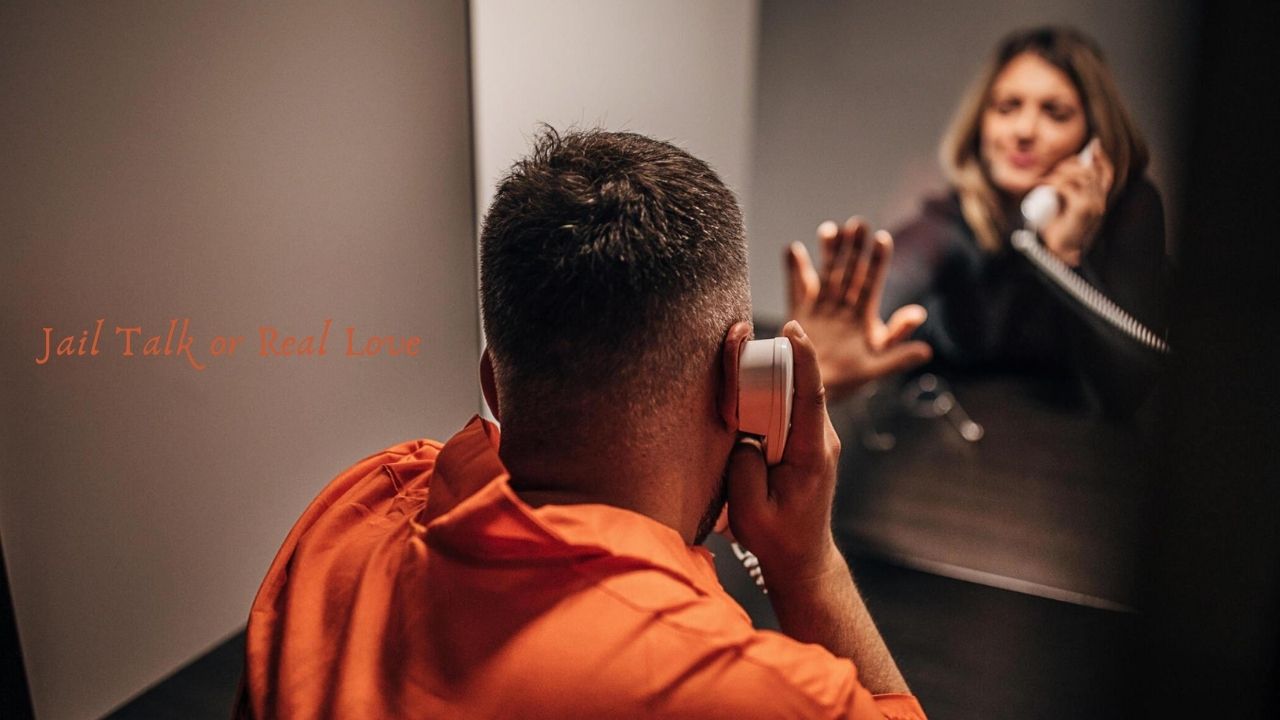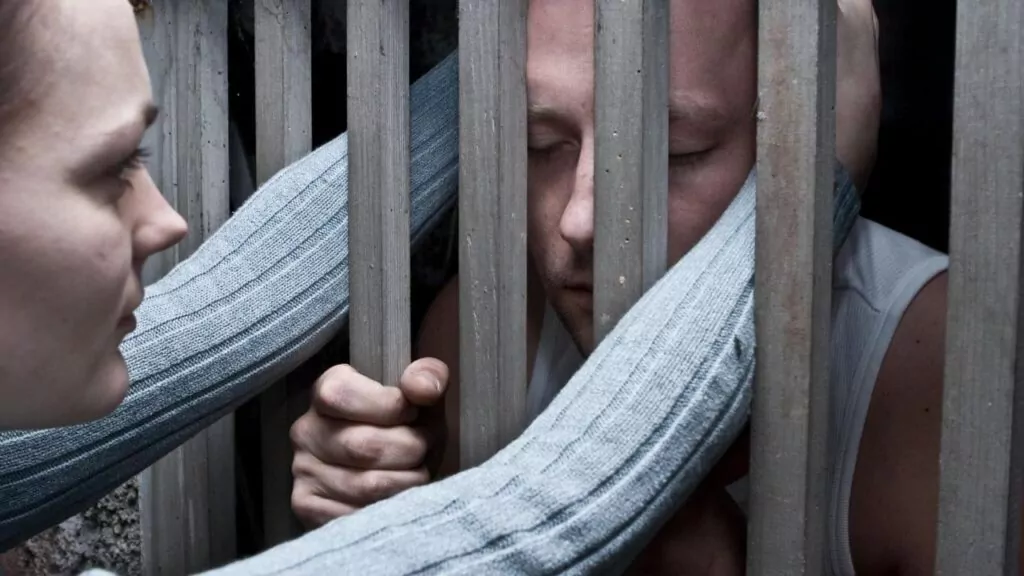Establishing authentic connections can be complex, especially when one person is incarcerated. Relationships under these circumstances often prompt the question: is it ‘jail talk or real love’, a phenomenon where the incarcerated person might say what the other person wants to hear, or is it real love? Navigating these interactions requires keen observation and understanding, assessing whether the emotional bond is genuine or a product of the situation.
In these relationships, the balance of empathy and the realities of life on the outside versus the inside are crucial. If your incarcerated loved one comprehends the challenges you face and shows genuine care for your well-being, it could indicate that their feelings are sincere. However, be cautious of conversations that revolve solely around their needs or are peppered with grandiose promises—these could be signs of ‘jail talk’.
When connecting with someone behind bars, it’s essential to distinguish between words that are grounded in genuine emotion and those that may be a strategy for coping with incarceration. Consistency in their treatment of you and others, the language used, and the depth of the connection over time can offer clues. Are you in a relationship that bridges the gap between inside and out with true understanding, or are you caught in the web of ‘jail talk’?
Jail Talk or Real Love: Understanding Incarceration
Navigating the complexities of the prison system and its effect on relationships requires both empathy and clear-headed understanding. This section explores the structural and personal dimensions of incarceration.
The Prison System
The prison system is established with the intent of punishment, rehabilitation, and deterring future crimes. If you have a loved one behind bars, knowing more about this system can be crucial for providing support. You should be aware of the rigid structures, rules, and lexicon that govern life on the inside.
- Structures: A network of state and federal facilities.
- Rules: Guidelines that manage prisoner conduct and visitation.
- Lexicon: language particular to incarcerative settings.
Impact on Relationships
Relationships can suffer greatly due to incarceration, which calls for resiliency and strength from those on the other side of the prison walls. Below, explore how these dynamics unfold and ways to foster connection despite them.
- Emotional support is vital for both parties to weather the separation.
- Limited opportunities for interaction often make communication difficult, which is the lifeblood of any relationship.
Maintaining a relationship while a partner is incarcerated involves navigating a host of challenges and finding innovative ways to express commitment and care.
Communication Challenges
Navigating the complexities of communication within a correctional environment presents unique obstacles that can deeply impact relationships. Your understanding of these challenges can inform how to maintain bonds despite the difficulties.
Language and expression
When communicating with an incarcerated loved one, what you say—and how you say it—matters. The constraints of prison rules not only limit the frequency of communication but also the very words you can share. Writing is a central mode of communication, and developing clear and empathetic language becomes crucial. Are you choosing words that convey support and understanding? With restricted phone call schedules and monitored letters, expressing genuine emotions and maintaining clarity is an ongoing challenge.
Maintaining Connections
When prison walls are separating you, how can you maintain a strong relationship? Visits are perhaps the most face-to-face communication you will have, yet these are often infrequent and must be navigated through strict protocols. The outside world seems far away during these times, and it takes effort to bridge that gap. To foster a connection, consistent writing and empathy are your tools, ensuring your loved one doesn’t feel isolated from your life’s ongoing narrative. Is your correspondence a lifeline for them? Are you keeping them connected to daily realities and shared experiences despite the physical separation?
Your commitment to overcoming these communication challenges can strengthen the foundations of your relationship, creating a powerful testament to enduring affection and mutual support.
Analyzing Jail Talk or Real Love
When connecting with an inmate, distinguishing between genuine sentiments and ‘jail talk’ is paramount. The latter might be manipulation or insincere expressions influenced by the prison environment.
Identifying Sincerity
To identify sincerity in jail talk, observe the consistency of the inmate’s communications. Genuine messages often convey empathy and understanding of your experiences outside their confinement. Are they expressing concern for your well-being rather than always focusing on their own needs? Trustworthiness may be reflected in their willingness to discuss personal growth and accept responsibility for their actions.
Decoding Prison Slang
Understanding the language used in jail can provide insight into the authenticity of the inmate’s statements. Decoding prison slang is crucial; it’s a language developed within confinement that holds specific meanings. Familiarize yourself with common terms to discern whether the language used illustrates a desire for real connection or falls back on the shield of slang to manipulate or exaggerate.
| Slang Term | Potential Meaning | Sign of sincerity? |
|---|---|---|
| Kite | A secret message | It depends on the content. |
| Dap | Respect | Possibly yes |
| In the car | Being involved | Context-driven |
Remember, meaningful communication seeks to bridge the distance, and through language, empathy, and understanding, you can start to differentiate genuine discourse from mere jail talk.
Romance Behind Bars
Exploring relationships within the constraints of prison walls reveals a complex landscape of love. Here, we delve into the creation and maintenance of romantic connections, despite physical separation.
Falling in love
Have you ever wondered how love blossoms in a place as unlikely as prison? Interestingly, prison relationships often begin with correspondence or during visitations. Sometimes, it’s through a prison pen-pal program or via visitors who meet inmates during outreach programs or social visits. The foundation for these relationships is built on an exchange of letters, phone calls, and, where permissible, in-person visits.
Key Factors Leading to Romance in Prison:
- Communications: Regular letters and phone calls
- Ongoing personal sharing, despite physical barriers
Long-Distance Relationship Dynamics
Managing a long-distance relationship can be daunting, can’t it? Imagine the added layers when one partner is in prison. These relationships face unique challenges, such as limited communication and physical contact. Trust and patience become critical components of the bond between the incarcerated individual and their partner on the outside.
Challenges in Long-Distance Prison Relationships:
- Limited Communication: Scheduled calls and monitored correspondence
- Physical Separation: Rare and Time-Limited Visitations
- Emotional Strain: Coping with the Absence of a Loved One
In such a dynamic, the emotional connection must often compensate for the lack of physical intimacy. Celebrations, life events, and daily struggles are shared in words and occasional shared moments, which can intensify the emotional bond.
Remember, these relationships require a high level of commitment and resilience from both parties. With mutual effort, these bonds can not only form but also last through and beyond the period of incarceration.
Case Studies and Stories
In this exploration, you’ll discover touching love stories formed behind bars and witness the transformative power of good deeds that redefine futures.
Love Stories from Jail
You may wonder: can real love flourish even in the most unlikely places? For some, relationships with incarcerated individuals prove that affection knows no boundaries. Take the case of women who find themselves intertwined with men serving time. Their commitment often survives despite the challenges of distance and stigma. Each story is a testament to the complex human capacity for love and commitment under extraordinary circumstances.
Turnarounds and Good Deeds
Is it possible to change a life that has experienced crime? Sean Pica is a living testament that change is within reach. Once a 9th grade dropout with a 24-year sentence, he turned his life around through education. Not only did he improve his own life, but he also made it his mission to empower others in similar situations. Giving back through good deeds creates a ripple effect, urging forgiveness and showing that past mistakes don’t define the future.
Support Structures
Support structures are critical in maintaining connection, hope, and stability for those with loved ones in incarceration. Through strengthening family bonds and utilizing available resources, you can create a robust network.
Family and friend networks
Your direct relationships are your first line of support. Keep communication open and frequent, as maintaining close ties with an incarcerated loved one can foster hope and mitigate the strains of distance.
- Letters and Phone Calls: Regularly send letters, drawings, or photos. Accept phone calls when possible, despite the cost.
- Visits: Schedule consistent visitations within the facility’s rules, creating moments of personal connection.
- Emotional Support: Offer a listening ear and an understanding heart to share the emotional burden.
Programs and Resources
Beyond personal ties, numerous programs and resources can offer guidance and support:
- Support Groups: Join groups composed of individuals in similar situations to share experiences and advice.
- Advocacy Organizations: Engage with organizations that advocate for criminal justice reform and offer support services.
- Education: Inform yourself about the correctional system to navigate it effectively and advocate for your loved one’s rights.
Utilize every tool at your disposal to create a web of support that bolsters your resilience through difficult times.
Special Considerations
When navigating a relationship with an incarcerated individual, certain occasions and transitional periods demand extra attention and sensitivity.
Holiday Celebrations
Holidays can fuel a sense of nostalgia and longing for both you and your incarcerated loved one. They often heighten the need for hope and support. During these times, creating new traditions can strengthen the bond and provide comfort. For example, synchronizing the reading of a particular book or watching the same movie on schedule can make you feel connected. How might you maintain a shared experience despite the distance?
- Direct communication: Letters and scheduled calls can provide warmth and closeness.
- Creative expression: Sending personalized cards or art can convey affection more deeply than generic messages.
Preparing for Release
Preparing for release is a pivotal moment filled with hope but also layered with practical challenges. What steps can you take to ensure a smooth transition?
- Emotional groundwork: Open discussions about expectations and fears can pave the way for mutual understanding.
- Resource planning: compile a list of employment, housing, and counseling resources to alleviate post-release stress.
| Preparation Aspect | Importance |
|---|---|
| Emotional readiness | High |
| Housing | Critical |
| Employment | Essential |
| Support network | Vital |
Proactive planning and maintaining consistent support can greatly influence the success of this life-changing event. How will you lay the foundation for a positive future together?
Conclusion
In navigating relationships during incarceration, it’s crucial for you to discern sincere sentiments from “jail talk.” The dynamics of incarcerated individuals are complex. Relationships on the outside offer strands of hope and connection beyond the prison walls. But incarceration can strain even the strongest bonds.
In assessing whether a prisoner’s declarations are genuine, attention to language and behavior is key. Are promises grounded and actions consistent? Real talk hinges on realistic expectations and respect for boundaries.
For those on the outside, the desire to believe in a loved one’s words can be powerful. Yet, it’s essential for your emotional well-being to recognize when optimistic plans may be an inmate’s way to cope with confinement.
Remember, maintaining an authentic connection requires mutual effort. If you find the inmate’s words align with their actions and they show respect and understanding for your life outside, these are promising signs.
You’re not alone in this; many share similar experiences. Support groups and counseling can provide you with additional perspectives. Keep your relationships informed by truth and mutual respect, whether they flourish within or survive beyond the bars of incarceration.





















